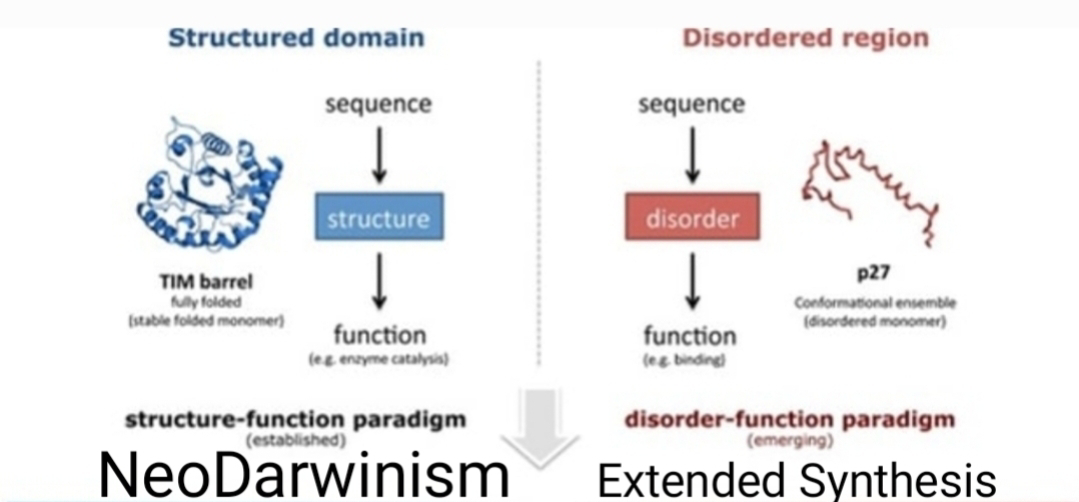IDPs act as Maxwells Demon without Neodarwinism
Neo-Darwinian evolution is the theory that evolution occurs by natural selection acting on genetic variation in populations. Maxwell's demon is a hypothetical being that can violate the second law of thermodynamics by opening and closing a door between two chambers of gas, allowing only fast-moving molecules to enter one chamber and only slow-moving molecules to enter the other.
Neo-Darwinian structured proteins cannot act like Maxwell's demons because they are not capable of opening and closing doors. They are also not capable of distinguishing between fast-moving and slow-moving molecules. In fact, structured proteins are themselves subject to the second law of thermodynamics. They tend to become disordered over time, unless they are constantly being repaired by enzymes.
Intrinsically disordered proteins (IDPs) have been proposed to act like Maxwell's demons. Maxwell's demon is a thought experiment that challenges the second law of thermodynamics, which states that entropy always increases in a closed system. The demon is a hypothetical being that can control the movement of particles in a system, allowing high-entropy particles to move to a low-entropy state, thereby reducing the entropy of the system.
IDPs are proteins that lack a fixed or ordered three-dimensional structure. This means that they can adopt a variety of different conformations, depending on their environment. This property allows IDPs to act as Maxwell's demons by binding to specific molecules and then changing their conformation to release those molecules in a controlled manner. This can be used to transport molecules across membranes, regulate gene expression, and perform other cellular functions.
One example of an IDP that acts like a Maxwell's demon is the transcription factor NF-κB. NF-κB is a protein that controls the expression of genes involved in inflammation and immunity. It is an IDP that can bind to DNA and then change its conformation to release the DNA, thereby activating the transcription of those genes.
Another example of an IDP that acts like a Maxwell's demon is the RNA-binding protein HuR. HuR is an IDP that binds to RNA and then changes its conformation to release the RNA, thereby regulating the translation of those genes.
IDPs are a fascinating class of proteins that are still not fully understood. However, their ability to act like Maxwell's demons suggests that they play a key role in many cellular processes.
Here are some additional details about how IDPs can act like Maxwell's demons:
IDPs can bind to specific molecules with high affinity. This allows them to selectively capture those molecules from a solution.
IDPs can change their conformation in response to changes in their environment. This allows them to release the molecules they have bound to in a controlled manner.
The ability of IDPs to act like Maxwell's demons is limited by the amount of entropy they can reduce. However, they can still be used to perform useful work, such as transporting molecules across membranes or regulating gene expression.
Overall, IDPs are a promising class of proteins that can be used to develop new drugs and therapies. By understanding how IDPs act like Maxwell's demons, we can develop new ways to harness their power to improve human health.





Comments
Post a Comment